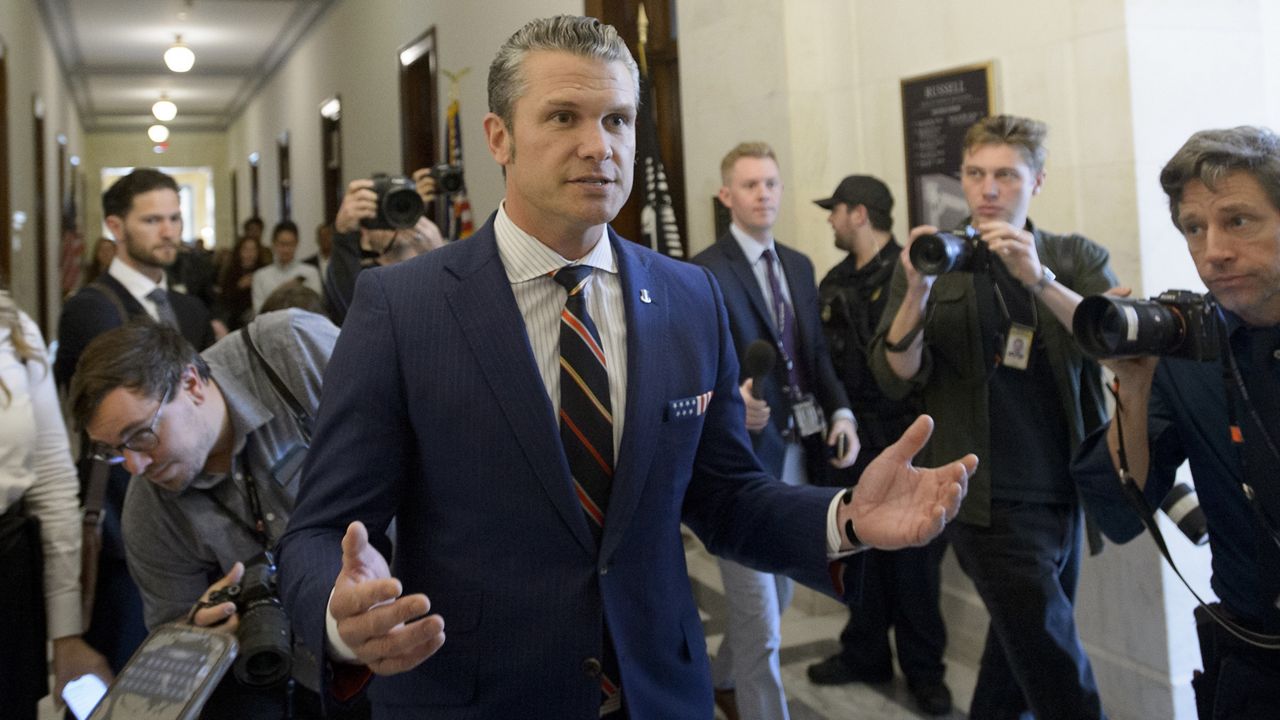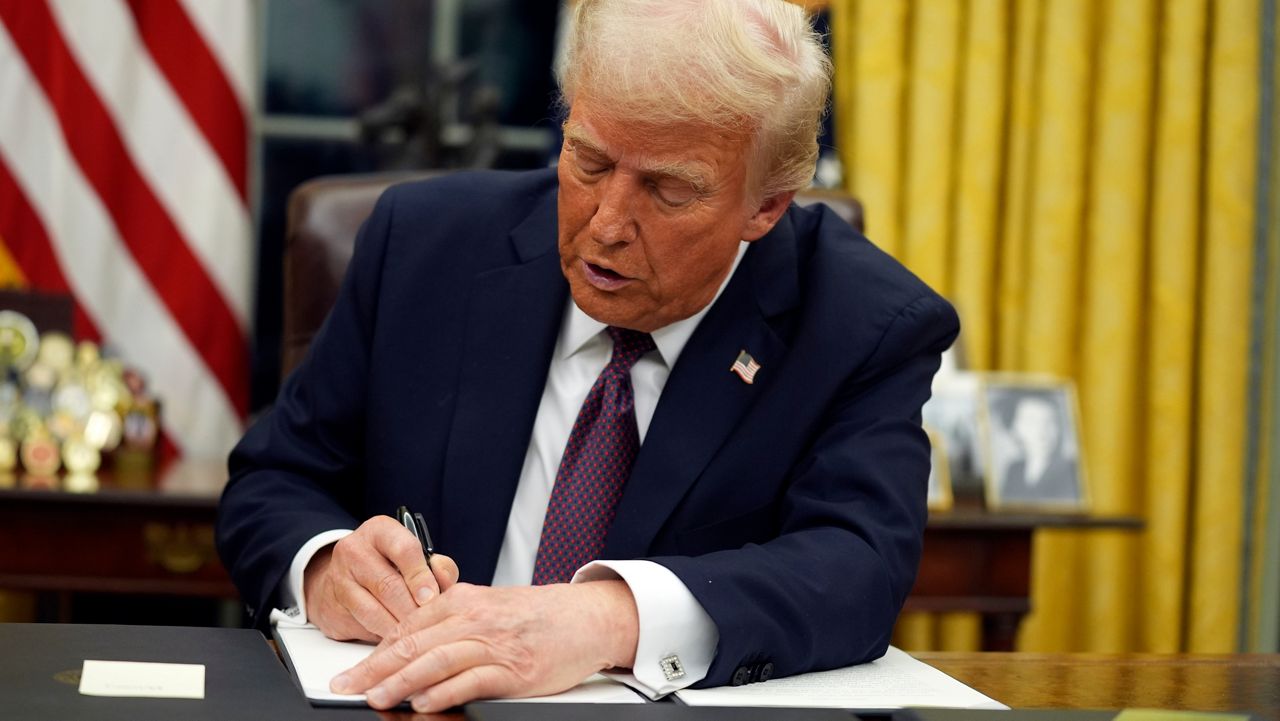The House of Representatives adjourned Wednesday evening without successfully electing a speaker. The continued conflict over the speakership of Rep. Kevin McCarthy, R-Calif., is dragging the lower chamber of Congress into its third straight day of deadlock. The House will reconvene Thursday at noon.
What You Need To Know
- The House of Representatives ended Wednesday without a speaker, as GOP leader Kevin McCarthy lost three more rounds of votes in his bid to become the chamber’s new leader, leaving Congress at a standstill
- Republicans opened the second day of the new Congress much like the first: divided on the way forward for their party's leadership
- On his way to Kentucky Wednesday, President Joe Biden briefly commented on the disarray, calling it "a little embarrassing"
- Without a speaker, the House cannot fully form — swearing in its members, naming its committee chairmen or engaging in floor proceedings
The adjournment vote, which ended at 216-214, was received with chaos, shouting, and ultimately relief as tardy members of the body raced to the floor to cast their votes.
After the House’s sixth vote for speaker failed to reach a majority decision, the body voted to adjourn until 8 p.m. Wednesday. In the intervening hours, journalists on Capitol Hill reported that notable Freedom Caucus-aligned political action committee Club for Growth had agreed to align with a McCarthy-aligned PAC to support McCarthy.
Shortly before the House reconvened Wednesday night, it was reported that House Democratic Whip Katherine Clark, D-Mass., had instructed Democrats to vote against a motion to adjourn. House Democrats have stood united over the last two days of Congressional business, maintaining speakership votes for Rep. Hakeem Jeffries, D-N.Y. Jeffries stands to become House Minority Leader when the speakership is decided — whenever that may be.
Without a speaker, the House cannot fully form — swearing in its members, naming its committee chairmen, engaging in floor proceedings and launching investigations of the Biden administration. It was the first time in 100 years the chamber failed to choose a speaker with the first ballot.
“Well, it’s Groundhog Day,” said Rep. Kat Cammack, R-Fla., in nominating McCarthy on the sixth ballot.
She said, “To all Americans watching right now, we hear you. And we will get through this — no matter how messy.”
After the sixth round of voting, the House adjourned until 8 p.m. Wednesday evening.
McCarthy received 201 votes on the latest ballot, while Florida Republican Rep. Byron Donalds was nominated as challenger for all three rounds.
Donalds collected 20 votes, again spoiling the 218 needed for McCarthy to win the speakership. One GOP member voted present after voting Tuesday for McCarthy.
Democrats stayed united behind caucus leader Hakeem Jeffries of New York, with all 212 voicing their support for him in the third vote of the day.
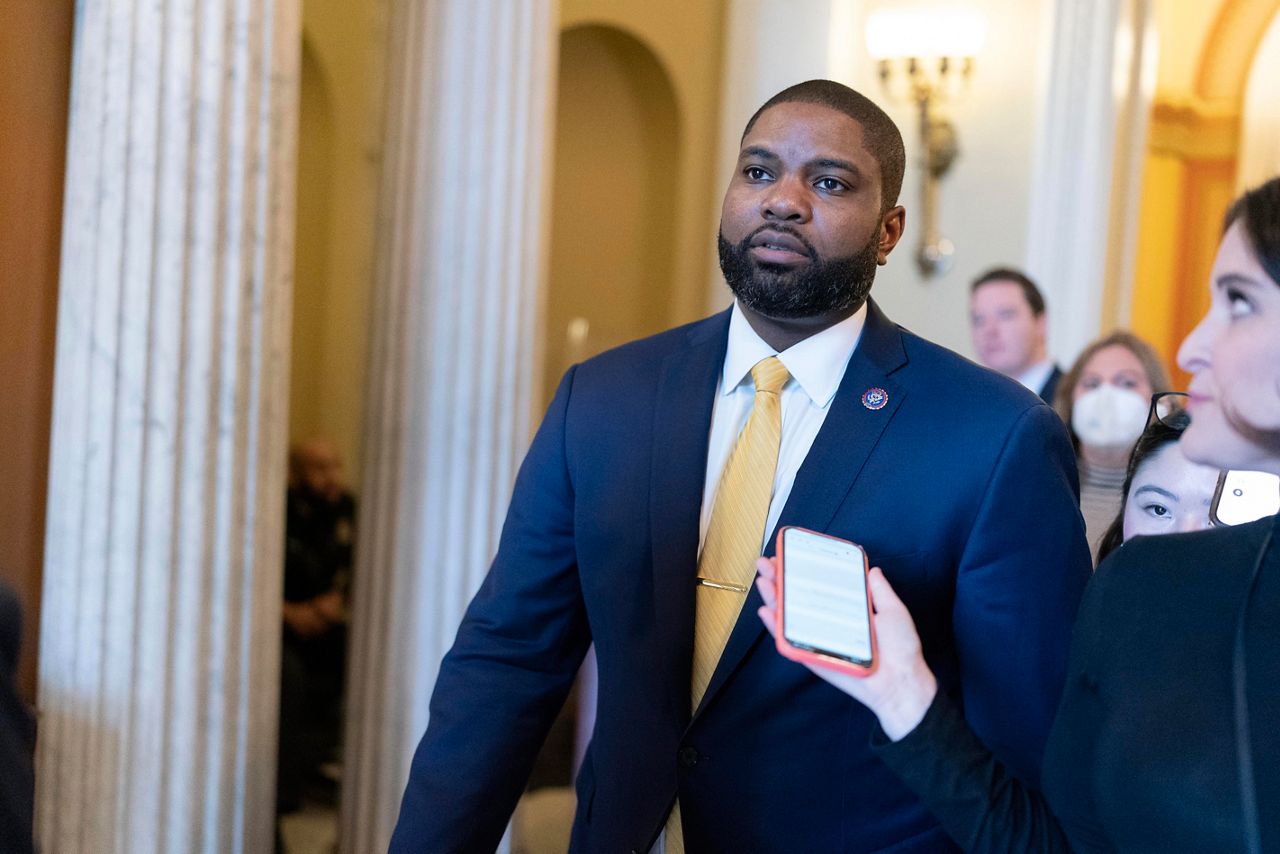
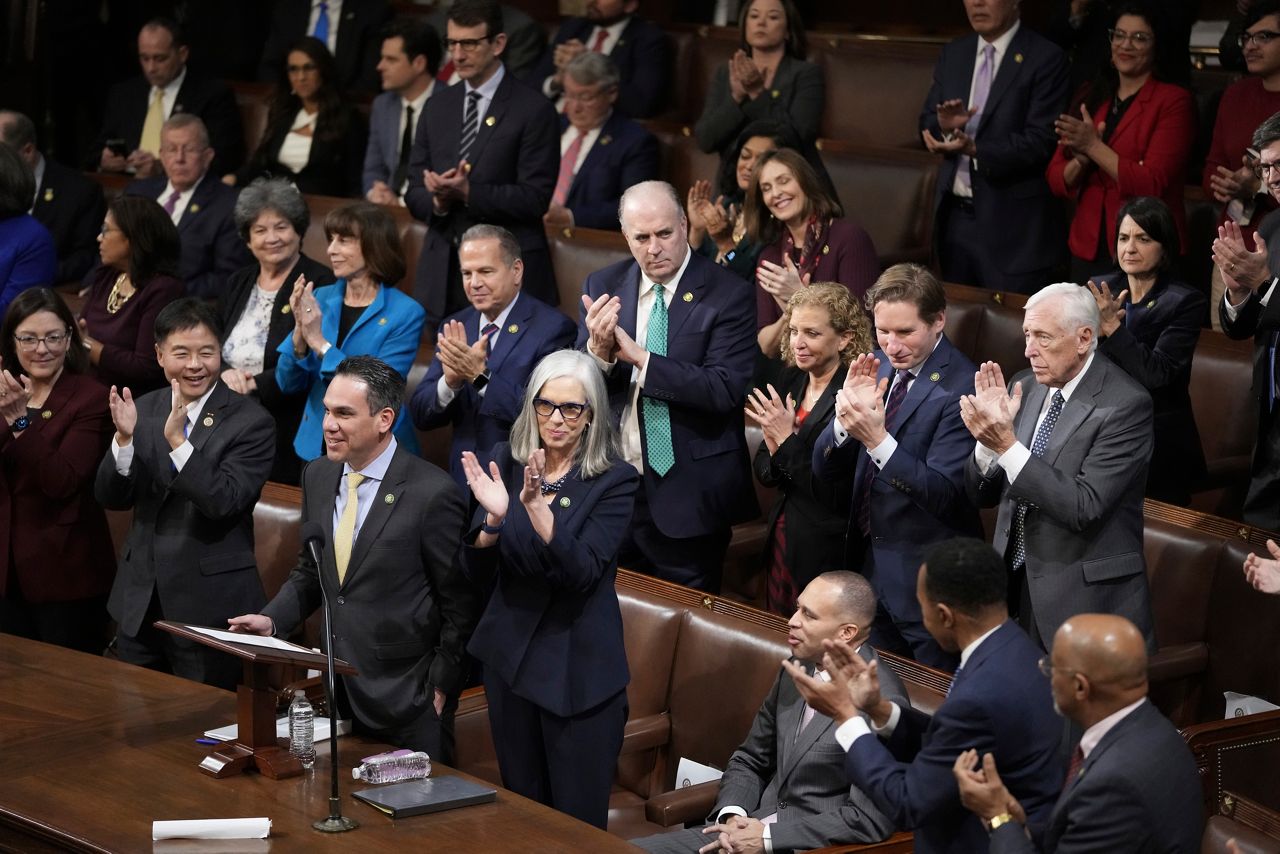
The sixth round resulted in a result identical to the fourth and fifth, indicating that GOP members made little progress in coming to a consensus throughout the day, though that could change during the few hours members are off the floor Wednesday.
Some members urged their party to find a new candidate that could gain a majority's favor, while others stuck by McCarthy, who had long been expected to become leader until recent weeks revealed divisions.
"On the big stuff, we all agree, right?" said Rep. Mike Gallagher, R-Wis., as he put McCarthy's name forward to kick of Wednesday's resumption of votes, urging GOP colleagues to unite behind the California representative. "It's time to get to work."
But it was not at all clear how the embattled GOP leader could rebound to win over right-flank conservatives who reject his leadership. It typically takes a majority of the House to become speaker, 218 votes — though the threshold can drop if members are absent or merely vote present, a strategy McCarthy appeared to be considering.
Matt Green, professor and head of the politics department at Catholic University in Washington, D.C., noted that “time is running out for McCarthy here,” telling Spectrum News after the fourth vote: “He needs to at least reverse the momentum, however slight, against his candidacy.”
In the fifth round of nominations, Rep. Lauren Boebert of Colorado put forward Donalds' name for the second time.
She sent a message to former president Donald Trump, who had voiced support for McCarthy earlier Wednesday.
"Even having my favorite president call us and tell us we need to knock this off -- I think it actually needs to be reversed," she said.
"The president needs to tell Kevin McCarthy that, 'Sir, you do not have the votes and it's time to withdraw,'" Boebert added, turning to look at McCarthy a few seats away.
Rep. Chip Roy of Texas, who also nominated Donalds in the first round of the day, said Americans did not want the "status quo" and urged his colleagues to consider a change in the new Congress.
Donalds was not expected to win the speakership but rather serve as an alternative for the 20 conservative holdouts against McCarthy.
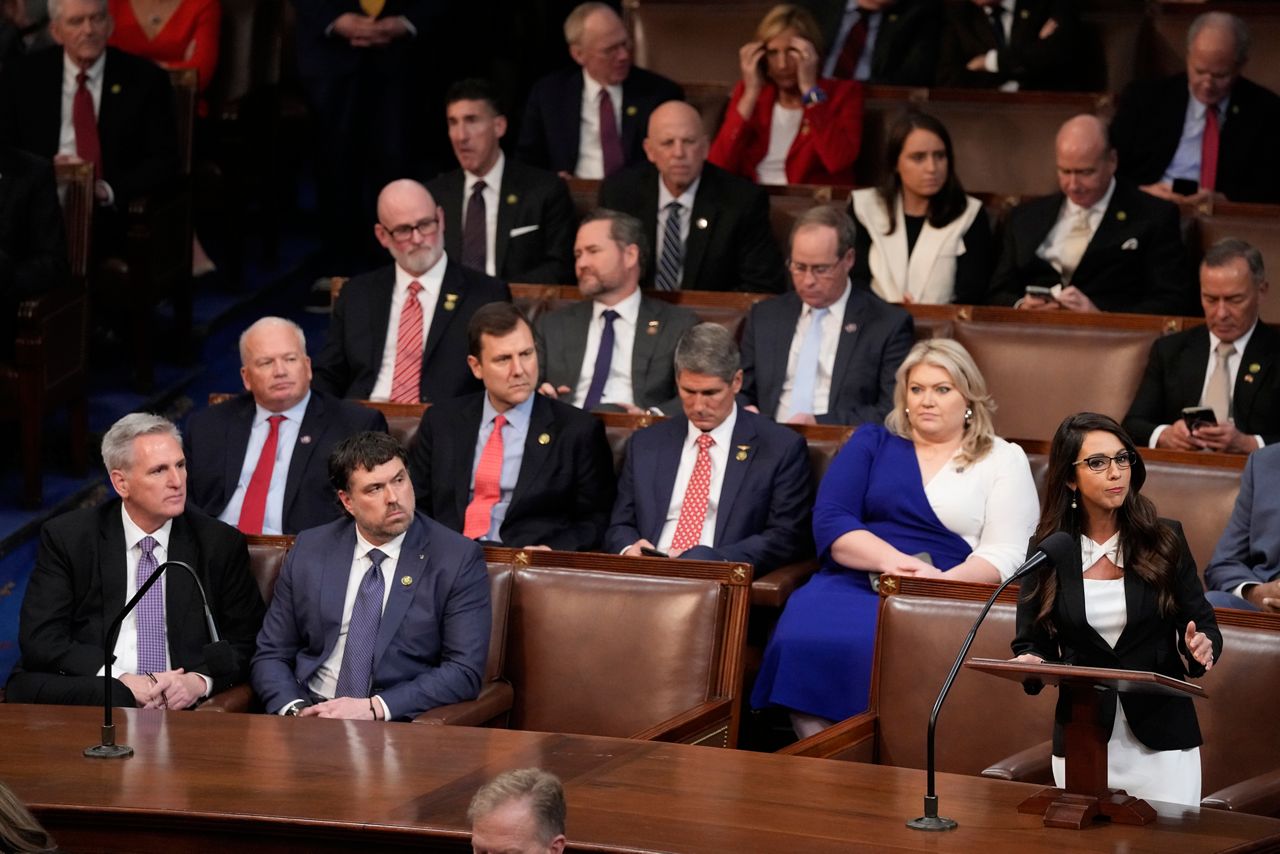
On his way to Kentucky on Wednesday morning, President Joe Biden briefly commented on the disarray, calling it "not a good look."
"That's not my problem," he said. "I just think it's a little embarrassing that it's taking so long."
He added: "The rest of the world's looking. They're looking at, you know, if we can get our act together."
Not since 1923 has a speaker's election gone to multiple ballots, and the longest and most grueling fight for the gavel started in late 1855 and dragged out for two months, with 133 ballots, during debates over slavery in the run-up to the Civil War.
Lawmakers' families had waited around Tuesday, as what's normally a festive day descended into chaos, with kids playing in the aisles or squirming in parents' arms.
"Kevin McCarthy is not going to be a speaker," declared Rep. Bob Good, R-Va., one of the holdouts.
A new generation of conservative Republicans, many aligned with Trump's Make America Great Again agenda, want to upend business as usual in Washington, and were committed to stopping McCarthy's rise without concessions to their priorities.
In many ways, the challenge from the far-right was reminiscent of the last time Republicans seized power in the House, when tea party Republicans brought hardball politics and shutdown government after winning control in the 2010 midterm elections.
As the spectacle of voting dragged on, McCarthy's backers implored the holdouts to fall in line for the California Republican.
"We all came here to get things done," the second-ranking Republican, Rep. Steve Scalise, said in a speech nominating McCarthy for the vote and urging his colleagues to drop their protest.
Railing against Democratic President Joe Biden's agenda, Scalise, himself a possible GOP compromise choice, said, "We can't start fixing those problems until we elect Kevin McCarthy our next speaker."
The standoff over McCarthy has been building since Republicans appeared on track to win the House majority in the midterm elections in November. While the Senate remains in Democratic hands, barely, House Republicans are eager to confront Biden after two years of the Democrats controlling both houses of Congress. The conservative Freedom Caucus led the opposition to McCarthy, believing he's neither conservative enough nor tough enough to battle Democrats.
To win support, McCarthy has already agreed to many of the demands of the Freedom Caucus, who have been agitating for rules changes and other concessions that give rank-and-file more influence in the legislative process. He has been here before, having bowed out of the speakers race in 2015 when he failed to win over conservatives.
If McCarthy could win 213 votes, and then persuade the remaining naysayers to simply vote present, he would be able to lower the threshold required under the rules to have the majority.
It's a strategy former House speakers, including outgoing Democratic Speaker Nancy Pelosi and Republican Speaker John Boehner had used when they confronted opposition, winning the gavel with fewer than 218 votes.
Said McCarthy late Tuesday at the Capitol: "You get 213 votes, and the others don't say another name, that's how you can win."






